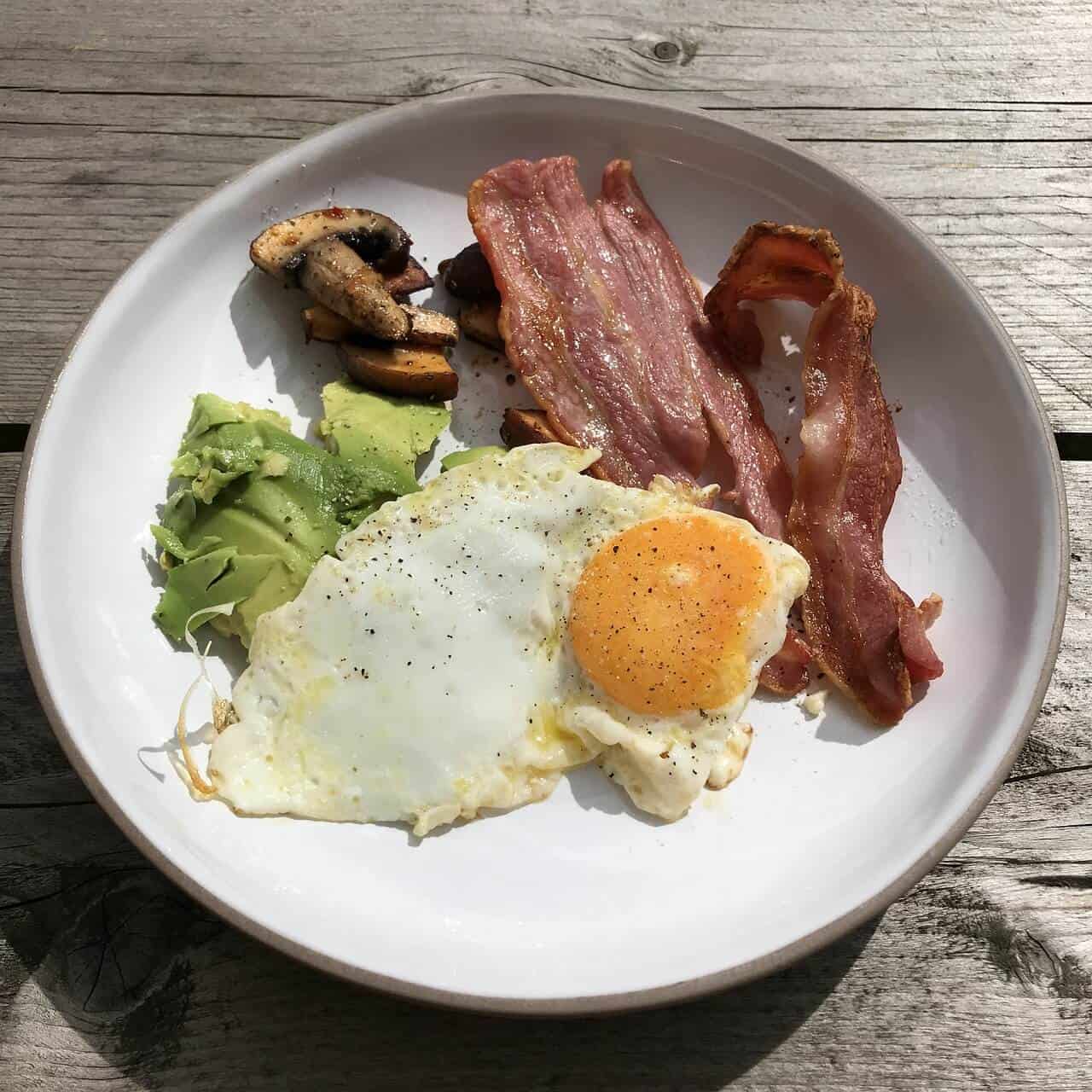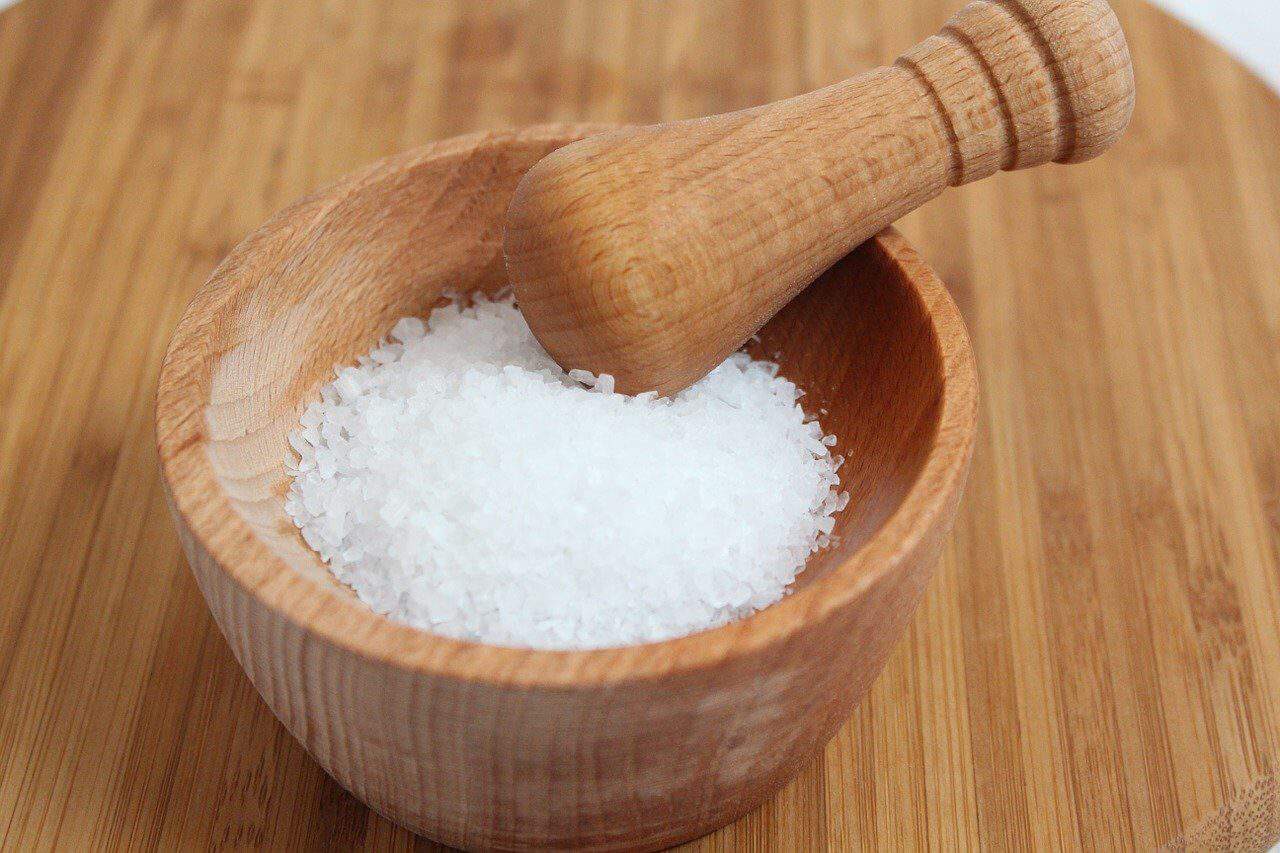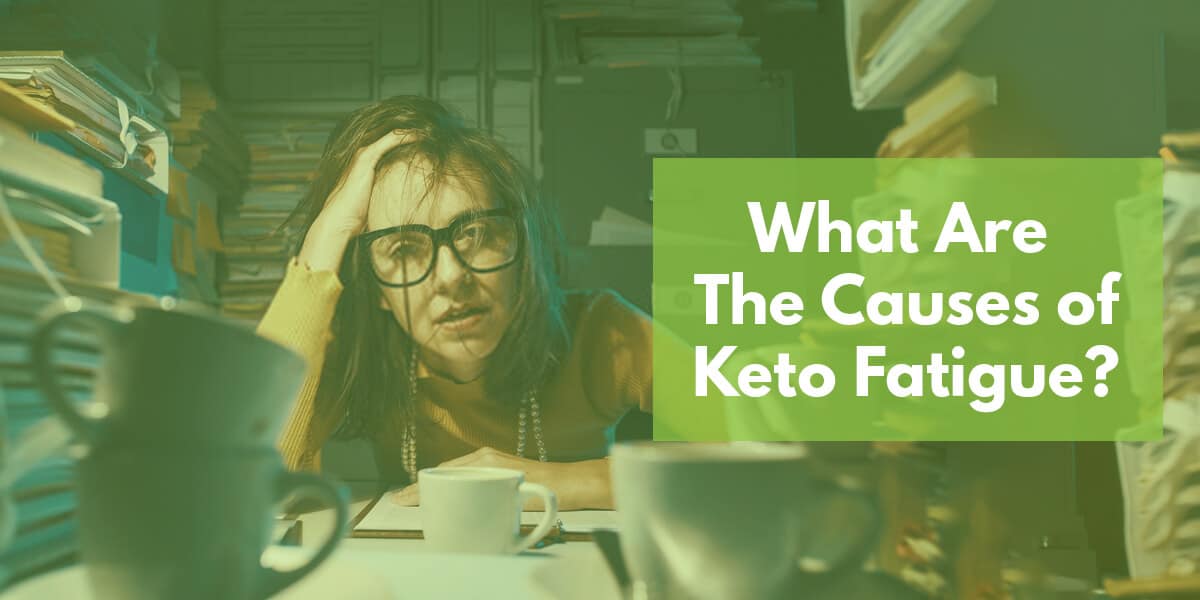So you’re only a couple of weeks in your keto diet and you’re already on the verge of quitting.
You’re fatigued and exhausted all the time, both physically and mentally. In fact, it seems that you feel worse than you did before you started on keto. But why?
In this article, I’m here to talk about the top reasons as to why you constantly feel exhausted on the keto diet, and solutions on how to improve your lifestyle all around.
But first, let’s start with the basics.
Table of Contents
The Keto Diet and Its Benefits

Simply put, the keto diet is a low carb, high-fat protein diet.
The science of it is this: the body can run on two different fuels. One is sugar (or glucose) from the carbohydrates we eat, and the other is fat.
By default, our body prioritizes burning sugar. But with the keto diet, as we’re significantly reducing our intake of carbohydrates, our body doesn’t have a choice but to burn fat.
The good news? Burning fat is highly efficient in producing energy for your body.
Being fueled by fat, a state called ketosis, has a ton of benefits. You’re literally burning fat 24/7, even during sleep, and it’s all aided by your own body.
It’s the perfect weight-loss technique and would completely turn your life around for the better if done right.
Benefits of the Keto Diet
The keto diet has been one of the top search results for weight-loss, with over a million google searches every month.
It’s been studied closely by top nutritionists and doctors and has been on a significant rise with social media and the diet community these past few years. Despite that, the keto diet, or at least the concept of the keto diet, has been around for over a century.
People do it and have been doing it all because it works. That’s what it really comes down to.
Here are some of the benefits of the keto diet:
- Could help with weight loss
- May reduce the risk of certain cancers and metabolic disorders
- May reduce seizures
- Your energy levels may rise significantly
- Could suppress your appetite
A lot of people chose the keto diet to improve their fatigue. But like any other transition phase and diet routines, the switch to keto may not be as smooth as everyone says it is. You’d sometimes feel even worse than before you’ve started.
In the coming sections, I’ll list the top four reasons as to why you feel so exhausted or fatigued all the time and tips on how to fix them.
Simply follow these tips and you can say goodbye to keto fatigue and reap all the benefits of this wonderous diet!
“Why Am I Exhausted on The Keto Diet”
There is an explanation as to why you feel so exhausted on the keto diet, and this can easily be remedied. Let’s go through these reasons together.
Reason 1: Mineral Depletion
You’ve probably heard of the keto flu. The keto flu, also known as the carb flu, is not a real flu; it’s merely a group of symptoms associated with the body adapting to a ketogenic diet.
The drastic reduction of carbohydrates may come as quite a shock to our bodies. Some may experience withdrawal-like symptoms such as nausea, constipation, and headaches. In addition to exhaustion and sugar cravings.
In other words, when you deprive your body of carbohydrates, your kidneys expel water more frequently – and with this comes our body’s natural minerals. Perhaps you may be low in sodium, magnesium, or potassium.
Your body may need time to adapt to your new diet. Later, we will discuss how to cure or even prevent the keto flu entirely, but for now, let’s proceed.
Reason 2: Dehydration
This might not come as a shock to most of us, as our bodies expel more water with the ketogenic diet.
To counteract this, it’s vital for you to drink plenty of water, perhaps twice what you would normally, to prevent dehydration.
Reason 3: Lack of Sleep

The keto diet can cause interrupted sleep and insomnia due to low levels of serotonin and melatonin, as well as higher than normal energy levels.
Going easy on caffeine, alcohol, and sugary sweets is proven to help with sleep.
Adding an exercise routine also helps – even for just 15-30 minutes per day to balance your body’s energy level.
Reason 4: Not Eating Enough, Or Eating Too Much
Because of your body’s transition to a high protein, low carb diet, it is very important to get enough fat in your system to ensure you have sufficient energy to burn. If you don’t, your energy will simply deplete, leaving you fatigued and exhausted.
To give you an idea, below is a list of keto-friendly foods.
What You Can Eat:
- Meat
- Fish
- Chicken
- Nuts
- Cheese
- Leafy greens
- Eggs
- Butter
- Oil such as olive oil, avocado oil, and coconut oil
What You Can’t Eat:
- Grains such as rice, pasta, and bread
- Desserts and sugary beverages
- Junk food (chips, fries, pizza)
- Alcohol
- Most fruits (except lemons, tomatoes, and selected berries
- Beans, peas, lentils, and peanuts
You will need to follow a very strict meal plan to get a sufficient calorie intake to improve your overall health and diet. This can prove to be quite difficult, especially if you’re just starting out with the keto diet.
Visiting a dietician is an effective way to make sure you’re following the right meal plan, however, I understand an appointment can be quite costly.
Fortunately, there is an alternative way. You can get your very own customized meal plan depending on your lifestyle, goals, and most importantly your taste by using the Custom Keto Diet program.
All in the comfort of your home!
Custom Keto Diet is a keto program catered to giving you the ideal meal plan on a weekly basis. It has recipes, instructions that are easy to follow, and a diet optimized to your own ideal calorie and macro intake.
The best part is? All meal plans are based on the experience and expertise of industry leaders.
That includes nutritionists, personal trainers, and chefs.
How To Prevent Keto Fatigue
Salt Intake

Research suggests that amping your sodium intake by 1 to 2 grams per day will help lower the side-effects of the keto diet. This is not to say that you should dramatically increase your salt usage; remember: balance is key. Salt all your food to your preferred taste.
If you’re still feeling tired, you can try adding one teaspoon of salt to the first glass of water you drink in the morning.
Exercise
Yes, I know. You’re utterly exhausted and barely have the energy to do anything. Remember: exercising is a vital part of any diet.
One of the great things about the keto diet is that you don’t have to constantly break a sweat to lose weight. That’s because your body is in a constant state of burning fat.
I’m not asking you to do push-ups or start jogging every morning (although it’ll be great if you do). Go out for a walk, do a bit of jumping jacks. It doesn’t matter which method you choose, it doesn’t matter how slow or how long.
You just simply need to move. You’ll feel much better if you do.
Diet
In essence, you need to have an average of 70-80% of fat, 5-10% of carbohydrates, and 10-20% protein in your daily diet. Fat provides 9 calories per gram, carbohydrates provide 4 calories per gram, and protein provides 4 calories per gram.
For example, these are the approximate amounts of the different food groups you could have per day.
1,500 Calories
- 116 g of fat
- 19 g of carbohydrates
- 38 g of protein
2,000 Calories
- 156 g of fat
- 25 g of carbohydrates
- 50 g of protein
2,500 Calories
- 195 g of fat
- 32 g of carbohydrates
- 63 g of protein
Note that these figures are an estimated calculation using information given by the Food and Nutrition Information Center.
This is where the Custom Keto Diet meal plan will prove highly beneficial; it will aid in making sure you are eating enough and will help in maintaining mineral balance. You don’t have to sit down and manually calculate your calorie intake. They’ll do it for you!
Supplements
Supplements include vitamins, minerals, amino acids, and herbs or botanicals, as well as other substances that can be used to supplement the diet.
The best supplements you can take while on keto are Magnesium, Short-chain Fatty Acids (SCFAs), Leucine, Vitamin D, and MCT Oils.
Final Thoughts
Food is fuel, and like any other type of fuel (whether it be for engines or anything else), an insufficient amount of any selected mineral may cause low motor functions.
Eat well and eat right. Give yourself enough protein and make sure to keep your body active throughout the day.
Most importantly, you need to remember to be kind to yourself while your body changes its fuel source. It might take a while, but give yourself time to adjust. Be patient. The rewards the keto diet brings far surpasses any material prize: a long and happy, healthy life.


